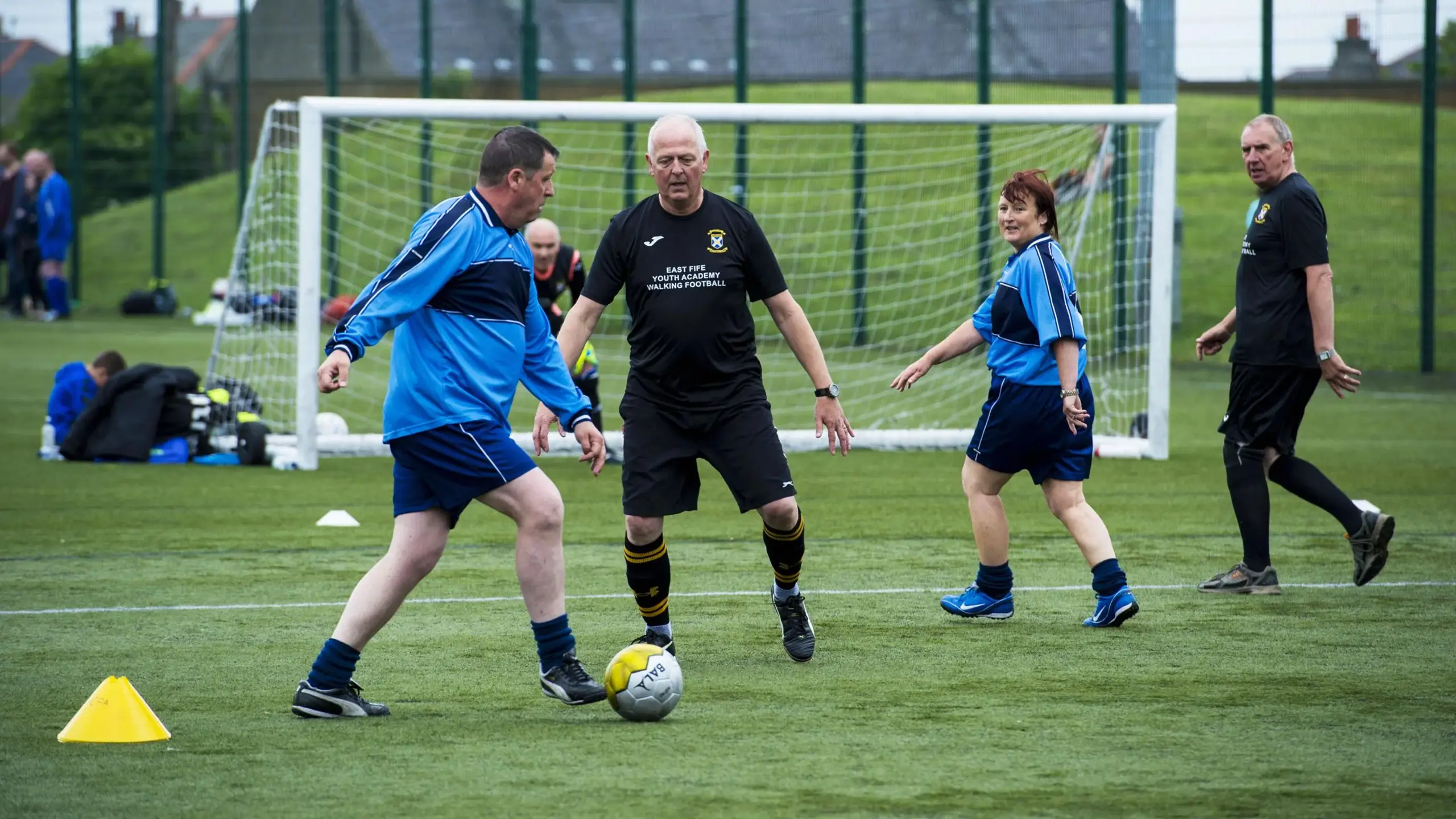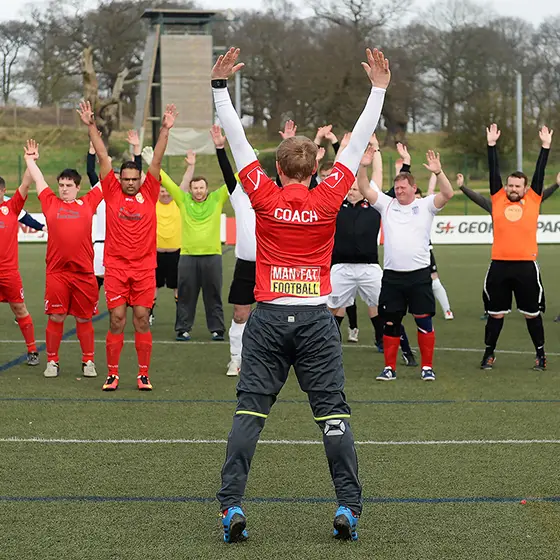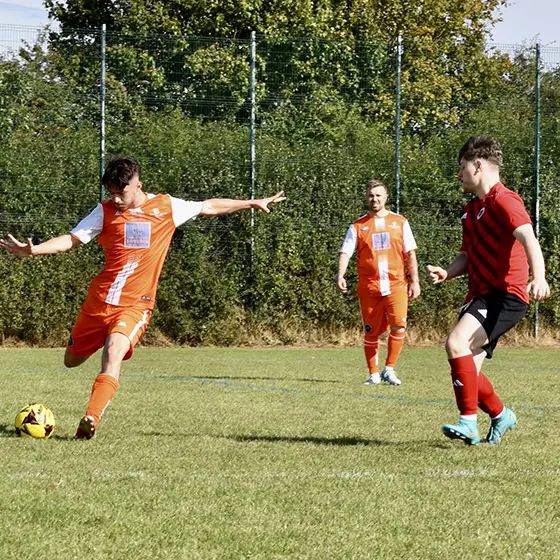Walking football champion John MacKinnon on staying active with U3A
John MacKinnon, Subject Adviser for Walking Football at Barnsley U3A, has been passionate about football and community wellbeing for decades.
Since 2017, Barnsley U3A has embraced walking football, a slower-paced, low-impact version of the game that allows older adults to stay active and social without the physical strain of traditional football.
John’s own football journey began in Scotland, where he played competitively before becoming a Grade One referee in the Scottish Premier League, officiating for over ten years. After moving to South Yorkshire in 2000, he joined Barnsley U3A in 2016 and quickly took on leadership roles, launching the walking football group that same year.
Walking football, John explains, offers a unique mix of fitness, fun, and friendship. The group now has 22 players from diverse backgrounds – including retired professionals like doctors and barristers – who meet regularly not just to play but to enjoy the vital social connection over tea and coffee afterwards. “That social aspect is massive,” John says.
On the rise
Since its creation in 2011, walking football has grown rapidly across the UK. There are now around 1,000 clubs and over 60,000 regular players taking part nationwide. More than 1,100 clubs are affiliated with governing bodies like the Walking Football Association (WFA), and national competitions feature 170 teams across age groups including over-50s and over-60s.
The Age UK Walking Football Programme, run in partnership with Sport England and the FA from 2021 to 2023, delivered over 2,800 sessions for 1,833 participants and set up 86 walking football groups at 38 Age UK centres across England.
“Walking football offers older adults a fun, low-impact way to stay active, improve fitness, and boost mental wellbeing,” adds John. It reduces the risk of injury while promoting social connection and community spirit. “In the UK, the U3A (University of the Third Age) has embraced the sport, with groups nationwide helping members enjoy regular activity, build friendships, and stay engaged well into retirement. They’re proving it’s never too late to play.”
International brigade
Notably, 69% of those groups continued operating after funding ended. The sport’s inclusive appeal has also seen partnerships with Parkinson’s UK, enabling over 100 people living with Parkinson’s to play at 12 clubs. Walking football has even gone international, with the WFA staging England’s first match against Italy and continuing to build a network of national and regional competitions.
John’s role expanded nationally when he organised a walking football tournament at the U3A conference, drawing teams from across the country. He also serves as a national walking football adviser, growing the sport’s footprint and advocating for unified rules across England.
For John, the benefits extend beyond physical health. He recalls a player diagnosed with dementia who continues to participate actively, supported by the community. “If he didn’t have that to come to, his wife would need to find something else to occupy him four times a month,” John reflects.
Find your nearest Walking Football club and walking football under U3A is more than a game – it’s a lifeline that keeps people moving, connected, and engaged well into their later years.


















